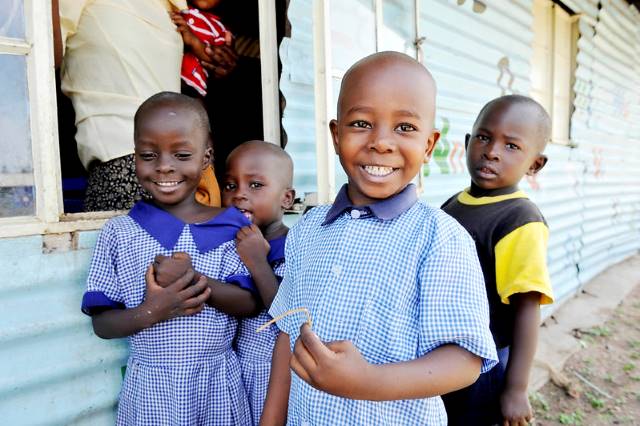Continued Education for Vulnerable Children in Kenya
 Organizations like UNICEF and ACAKORO have been providing educational resources to Kenyan students despite the immense difficulties in the country due to COVID-19 and 2020’s locust invasion. On March 15, 2020, the Kenyan Government forced schools to shut down due to COVID-19. Due to school closures, millions of students risk losing out on education during the pandemic. Organizations stepped in to provide resources, remote learning services and sanitation facilities to vulnerable children in Kenya.
Organizations like UNICEF and ACAKORO have been providing educational resources to Kenyan students despite the immense difficulties in the country due to COVID-19 and 2020’s locust invasion. On March 15, 2020, the Kenyan Government forced schools to shut down due to COVID-19. Due to school closures, millions of students risk losing out on education during the pandemic. Organizations stepped in to provide resources, remote learning services and sanitation facilities to vulnerable children in Kenya.
Education in Kenya
Over the past decade, poverty in Kenya has improved due to the country meeting many of its Millennium Development Goals. The Millennium Development Goals are goals created by the United Nations to help underdeveloped nations improve and one of these goals is to achieve universal primary education. A key issue that Kenya needs to address is education disparities. According to a UNICEF study conducted in 2014, low educational attainment of the household head and living in rural areas is the highest indicator that predicts child poverty.
Impoverished children struggle to gain an education. More than 1.2 million primary-school-age children do not attend school. Even more vulnerable children like orphans have increased susceptibility to experiencing education disparities.
Employment in Kenya
Young people in search of employment experience difficulties finding a job that lifts them out of poverty. Only 1% of Kenyan youth have a university education and many young people are entering a job market with few hirable skills. A whole 40% of the youth in Kenya either did not go to school or failed to complete primary education and the largest percentage of people unemployed in Kenya is represented by those aged between 15 and 24. Higher education in Kenya is expensive and not accessible to disadvantaged children.
UNICEF Provides Aid
Nationwide access to quality education is key in reducing poverty and investing in the futures of vulnerable children in Kenya. UNICEF alleviated education burdens during the COVID-19 crisis by providing remote learning to students and giving solar-powered radios and textbooks to vulnerable families. Through UNICEF’s solar-powered radios, 40,000 vulnerable children were reached with educational resources that are necessary for remote learning. On December 23, 2020, UNICEF provided 700,000 masks to be distributed in time for schools to reopen on January 4, 2021. Improved access to sanitation is an ongoing issue, and due to the pandemic, the need for sanitation is of crucial importance. UNICEF foresaw the issue and provided handwashing facilities to hundred of schools.
ACAKORO
ACAKORO is a community-based organization, supported by UNICEF, that uses football as a tool for development. ACAKORO works with the community of the Korogocho slum and has been tutoring vulnerable children during COVID-19 so that they can continue their learning. UNICEF is also supporting the government and the Kenya Institute of Curriculum Development (KICD) with remote learning and getting schools ready to reopen safely.
The Kenya Jua Kali Voucher Programme
The Kenya Jua Kali Voucher Programme, implemented between 1997 and 2001, was a revolutionary comprehensive policy designed to provide vulnerable youth with vouchers to pay for training courses. A similar modern-day strategy can be put in place in order to address the lack of access to essential education in Kenya. Providing equal access to education for all children in Kenya is essential to lift people out of poverty.
Organizations such as UNICEF and ACAKORO are addressing education-related disparities amid the pandemic, thereby addressing overall poverty in the nation.
– Hannah Brock
Photo: Flickr
